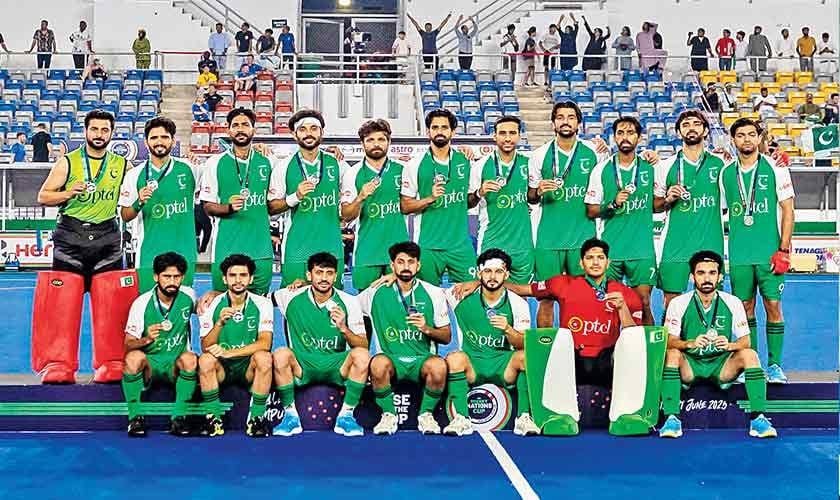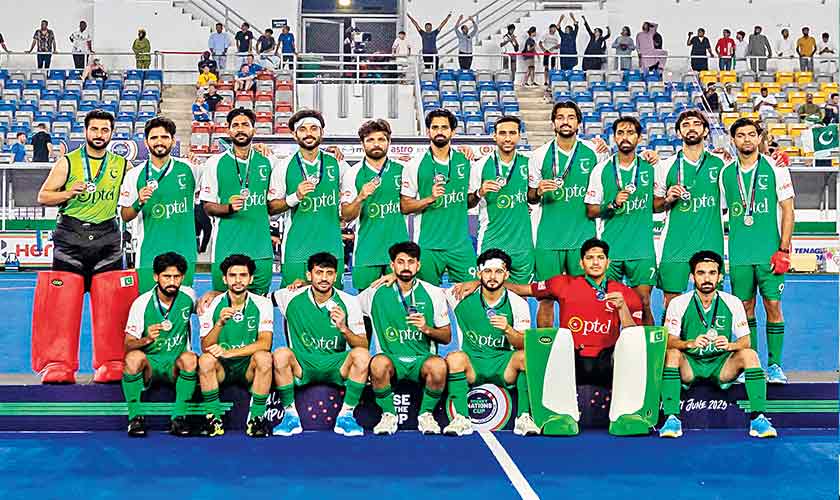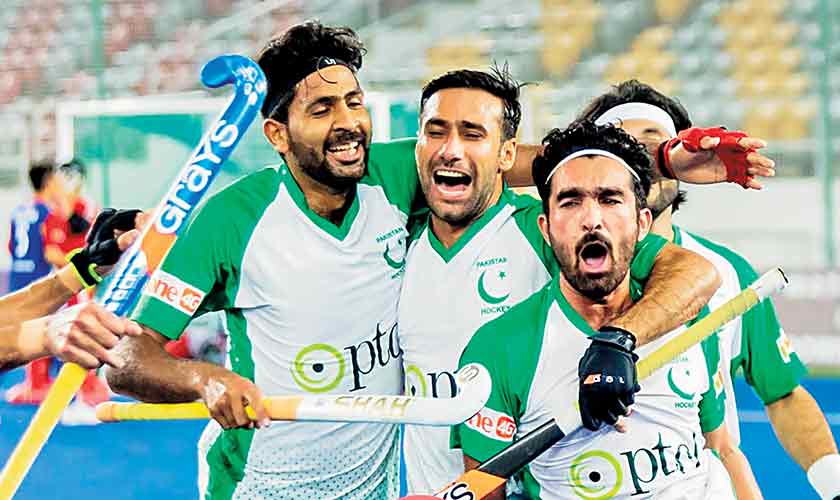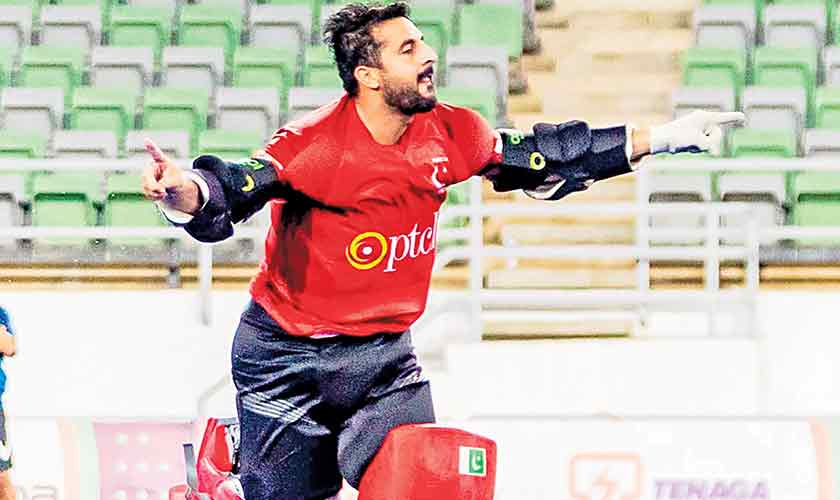Apowerful message echoed from Malaysia last week, one that reminded the world of a sleeping giant. Pakistan’s national hockey team, once feared and revered, reached the final of the FIH Nations Cup. Though they fell to New Zealand in the title clash, the achievement is significant not because of the silver medal, but because of what it represents: a fragile but vital spark of hope for a sport that has been brought to its knees by years of administrative chaos, policy blunders, and state neglect.
The 6-2 loss to New Zealand in the final was lopsided, but it shouldn’t distract from Pakistan’s gritty journey to the summit. They started with a thrilling 3-3 draw against hosts Malaysia, overwhelmed Japan 5-2, lost narrowly to New Zealand 4-3 in a group match they initially led, and then scripted a dramatic comeback against France, drawing 3-3 before winning a shootout 3-2. That semifinal win, powered by Player of the Match Rana Waheed Ashraf, epitomized Pakistan’s fighting spirit. “We gave everything,” said Ashraf, a line that summarised the passion that has long outlived the system supporting it.
Pakistan had last won a major international title in 1994, lifting the World Cup under the leadership of Shahbaz Ahmed Senior. That generation, Shahbaz Senior and Junior, Tahir Zaman, Naveed Alam, Sohail Abbas, Shakeel Abbasi and others, had skill and vision. But as they moved into coaching and federation roles, internal rifts and lack of meritocracy set in. Their legacies couldn’t translate into institutional success.
What followed was a slow, painful decline. A turning point came post-Beijing Olympics 2008. Then-PHF President Mir Zafarullah Khan Jamali and Secretary Khalid Mahmood had launched a promising player welfare programme under coach Naveed Alam. Young athletes were given education, stipends, and structured training. It was a visionary plan, backed by Tahir Zaman. But after a disappointing Olympic campaign and a subsequent change in PHF leadership, the programme was scrapped.
By 2010, Pakistan hit rock bottom, finishing last at the World Cup in India, even losing to South Africa. Yet, the same individuals remained in charge, with no accountability. Pakistan, the only country with four World Cups and three Olympic hockey golds, failed to qualify for subsequent Olympics and World Cups.
The switch from grass to synthetic turf in global hockey exposed another shortcoming: Pakistan never modernised training methods or invested in turf-based infrastructure.
During Qasim Zia’s tenure as PHF President, financial support did improve, thanks to a friendly PPP-led federal government and contributions from provincial governments. But structural changes never followed. And worse was yet to come.
When institutions like PIA, NBP, and WAPDA disbanded their hockey teams and stopped hiring players, it created a vacuum. Universities and colleges stopped offering hockey-based admissions. The result? No job security, no pipeline, no future. And so, the national sport began dying quietly.
Yet amidst this bleak backdrop, Pakistan’s silver medal in Malaysia stands tall. Yes, they missed qualification for the FIH Pro League by losing the final, but New Zealand’s withdrawal led to Pakistan being invited to participate anyway. It’s an opportunity that must not be squandered.
Team Captain Ammad Butt acknowledged the emotional loss but remained hopeful. “With proper support and encouragement, we can produce even better results,” he said.
The current team didn’t even receive daily allowances during the tournament, a damning indictment of the state’s apathy. PHF President and Secretary Rana Mujahid called for greater institutional support and private sector sponsorship. They are right. Without sustainable funding and autonomy, Pakistan hockey will continue to survive, not thrive.
In spite of everything, passionate individuals continue to serve the sport. Tauqir Dar’s academy in Lahore regularly sends players on international tours.
Pir Saleem Amir runs an excellent academy in Sargodha. The late Rana Zaheer’s work in Lahore, Khawaja Junaid’s hard work in Lahore and Mubashir Chaudhry’s local-level efforts in Sheikhupura have kept young athletes engaged in hockey. Their work is the sport’s lifeline.
There’s also a dormant dream worth reviving: the Pakistan Super Hockey League. Modelled after the successful Pakistan Super League (PSL) in cricket, this initiative could rejuvenate interest, bring in corporate funding, and give local players international exposure. Why not involve PSL franchises in its creation? If a packed National Hockey Stadium in Lahore could once again roar for its hockey heroes, it would turn global attention back to Pakistan, not just for its past, but for its potential.
To make that happen, the government must step up. Prime Minister Shehbaz Sharif, Chief Minister Maryam Nawaz, and all provincial governments must recognise the national significance of hockey. This isn’t just about nostalgia. It’s about reclaiming identity and pride through a sport that once defined Pakistan’s global stature.
The players are ready. The coaches are willing. The fans are still loyal. All that’s missing is vision, planning, and political will. Let the silver medal in Malaysia be the starting point of a golden future, if only we dare to dream, and more importantly, act. Pakistan hockey deserves better. And it deserves it now.
sarfraznews12@gmail.com







